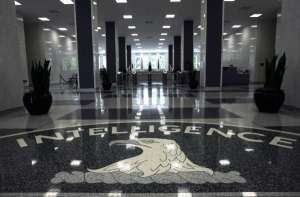
Gallo Images / Getty News
Intelligence work and climate science have a lot in common. They both involve grappling with uncertainty, trying to make sense of a signal amid the noise of ambient data and preparing to fight threats to country. So it makes sense that in 2009 the Central Intelligence Agency (CIA) opened the Center on Climate Change and National Security, a place where Langley analysts could look at the latest science on climate change and view it through the prism of national and international security. But as Charles Mead and Annie Snider reported in a piece for McClatchy earlier this year, having government spooks keep an eye on climate change has been politically controversial from the beginning:
Back in the 1990s, the CIA opened an environmental center, swapped satellite imagery with Russia and cleared U.S. scientists to access classified information. But when the Bush administration took power, the center was absorbed by another office and work related to the climate was broadly neglected.
In 2007, a report by retired high-ranking military officers called attention to the national security implications of climate change, and the National Intelligence Council followed a year later with an assessment on the topic. But some Republicans attacked it as a diversion of resources.
And when CIA Director Leon Panetta stood up the climate change center in 2009, conservative lawmakers attempted to block its funding.
More from TIME: An Oily Mess in the Niger Delta
Perhaps not surprisingly, the CIA has been very close-mouthed—even for, you know, the CIA—about its work on climate change. Republican Senator John Barrasso of Wyoming tried to kill funding for the center earlier this year, and conservatives—who increasingly discount the reality of global warming—have expressed skepticism about the CIA’s climate work. It’s a rule every spy should know—when the heat is coming, keep your head down and stay out of sight.
The problem is that such the CIA’s environmental intelligence gathering has little value if it’s not being shared—not a single document has been issued, and the agency insists on classifying much of its material classified. And that secrecy means the agency itself, by virtue of its isolation, is missing out on the latest science. That’s the conclusion of a new report (PDF) from the Defense Science Board, which urged the CIA to get beyond the traditional culture of secrecy and open up on its global warming assessments. The board even recommends the establishment of a new intelligence agency that can study the security impacts of climate change, but do so in an open and unclassified way, “cooperating with other domestic and international intelligence efforts.”
The national security implications of climate change are very real. As temperatures rise, water and food supplies will likely be affected, destabilizing poor countries in the tropics—and potentially seeding the ground for civil wars and other conflicts. Melting polar ice caps will change global transport and open up new energy resources, setting off a far northern race for influence. On the whole, a warmer world is likely to be a more dangerous one—for the U.S. and other nations. That’s why in the battle over warming, it’s time for our spies to come in from the cold.
More from TIME: Climate and Security
Bryan Walsh is a senior writer at TIME. Find him on Twitter at @bryanrwalsh. You can also continue the discussion on TIME’s Facebook page and on Twitter at @TIME


